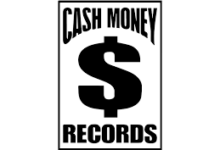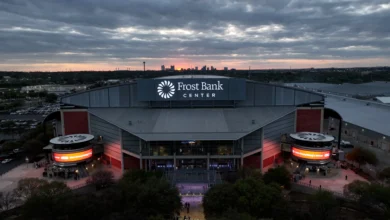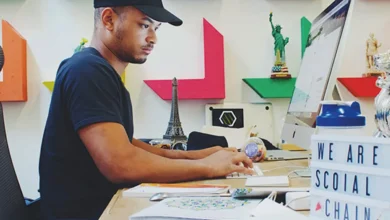What Year Did Cash Money Take Over

Suppose you’ve ever found yourself vibing to a track and suddenly heard the phrase “What Year Did Cash Money Take Over Records taking over for the…” followed by a slick proclamation. In that case, you already know this isn’t just a record label—it’s a cultural movement. The question that fans, hip-hop historians, and curious minds often find themselves asking is, What year did Cash Money take over? It’s not just a calendar date—it’s a seismic shift in sound, swagger, and the way hip-hop redefined success. Let’s deep-dive into how this powerhouse rose, resonated, and rewrote the rules.
Cash Money’s journey isn’t just about platinum plaques or iconic beats—it’s about the sheer audacity of building an empire from scratch. When someone asks, “What year did Cash Money take over?” they’re tapping into a legacy that stretches far beyond radio waves. This is the story of a brand that became a lifestyle, of artists who turned verses into visions, and of a label that understood early on the true power of independence and ownership.
The Rise of the Empire
To understand what year did Cash Money took over, you’ve got to rewind and look at the landscape before their wave hit. Hip-hop had already evolved through golden eras, regional rivalries, and seismic cultural shifts. But something was brewing in the South—something bold, unpolished, and hungry.
Cash Money wasn’t born in glitzy studios or backed by industry insiders. It was forged in the streets of New Orleans, built on hustle, grit, and a deep understanding of the local pulse. And that’s part of what makes the question, What year did Cash Money take over, so intriguing. Because it’s less about a calendar page turning, and more about a cultural temperature boiling over.
Artists like Juvenile, B.G., and Turk weren’t just rappers—they were storytellers channelling real-life chaos into raw, unfiltered music. And then came Lil Wayne, who would soon become one of the biggest voices of a generation. When folks ask, “What year did Cash Money take over?” they’re asking when the world first felt that spark—the moment when underground heat went global.
Breaking the Mould
Part of the answer to what year Cash Money take over lies in the fact that they didn’t wait for permission. They didn’t chase trends—they set them. With Mannie Fresh at the helm of production, the label carved out a distinct sound: bass-heavy, bounce-infused, and unmistakably Southern.
While other labels polished and refined their acts to meet mainstream appeal, Cash Money doubled down on authenticity. And that’s where their genius lived. Ask anyone what year did Cash Money take over, and they’ll remember not just the music—but the attitude. The videos, the iced-out chains, the cars with the candy paint. It was a movement, and it hit like a tidal wave.
It wasn’t just about chart positions or sales numbers. It was about a mindset shift. The idea that you could come from the bottom and own your throne. That you didn’t have to fit the industry mould to break through. So again, when asking what year did Cash Money take over, remember: it’s as much about spirit as it is about success.
The Global Explosion
The reach of Cash Money didn’t just stop in the States. One of the wildest parts of answering what year did Cash Money take over is recognizing how global their influence became. What started in the South shot across continents, shaping styles and inspiring new waves of artists from places as far as Europe to the Caribbean.
There’s something universally magnetic about that kind of rise. The raw ambition, the unfiltered storytelling, the refusal to be anything but themselves—it resonated. And suddenly, asking “what year did Cash Money take over” was something you’d hear on both sides of the Atlantic.
The radio was spinning their records. Clubs were lit off their anthems. And hip-hop, as a whole, had a new kingmaker in the game. Cash Money wasn’t just in the conversation—they were the conversation. Their soundtracks backed everything from house parties to blockbusters.
Legacy That Sticks
Fast forward, and people are still asking, “What year did Cash Money take over?” And the fact they’re still asking means one thing—they never really left. This isn’t just a label that had a moment and faded into the archives. This is a dynasty.
Artists from the new generation still cite Cash Money as a blueprint. The confidence, the independence, the artistry—it’s all still influencing today’s scene. When the blueprint is that strong, when the moves are that strategic, people don’t forget. And they don’t stop asking what year did Cash Money take over because that takeover still echoes in today’s music.
Merchandise, business deals, mentorship—they extended their reach into everything. And they did it while still representing where they came from. That balance of global scale with local loyalty? That’s part of the answer, too, when wondering what year did Cash Money take over.
Staying Power in a Changing Game
The music industry changes faster than most can keep up. Styles evolve, platforms shift, audiences grow and shrink like tides. Yet somehow, people are still having conversations about what year did Cash Money take over. That alone tells you how deep their roots go.
They didn’t just ride a wave—they created one. And that wave carried them through changing decades, shifting styles, and evolving expectations. Even as trap took hold, as drill began to rise, as mumble rap and melodic flows reshaped the game, Cash Money’s name never lost its weight.
Artists come and go. Trends bloom and burn. But when you’ve taken over in a way that changes the foundation, your name sticks. That’s why “what year did Cash Money take over” is asked with reverence. Because they did more than dominate—they defined.
More Than Just Music
Here’s the real kicker: when you’re digging into what year did Cash Money take over, you can’t stop at music. This was a brand that moved in fashion, business, lifestyle, and attitude. They became symbols of aspiration, not just for artists, but for anyone who understood the power of believing in their vision.
The label tapped into something raw and real. They spoke directly to the overlooked, the underestimated, the ones who had hustle but lacked a spotlight. And that connection? That’s takeover energy. You can’t fake that. You can’t market your way into that kind of loyalty. That’s built from the ground up.
It’s why so many still wonder, what year did Cash Money take over. Because the takeover wasn’t about domination. It was about connection. About culture. About legacy.
Conclusion: The Takeover That Never Ended
So, what year did Cash Money take over? That question will keep echoing, because the answer isn’t a date. It’s a movement. It’s the moment when the underdogs stopped knocking and kicked the door off the hinges. It’s when independence met innovation and sparked a cultural blaze that’s still burning.
From mixtapes to moguls, from bounce beats to Billboard, the journey is iconic. Cash Money’s influence didn’t just stop at the charts—it carved a permanent lane. So the next time someone asks you, What year did Cash Money take over, you might just want to answer: They never stopped.





